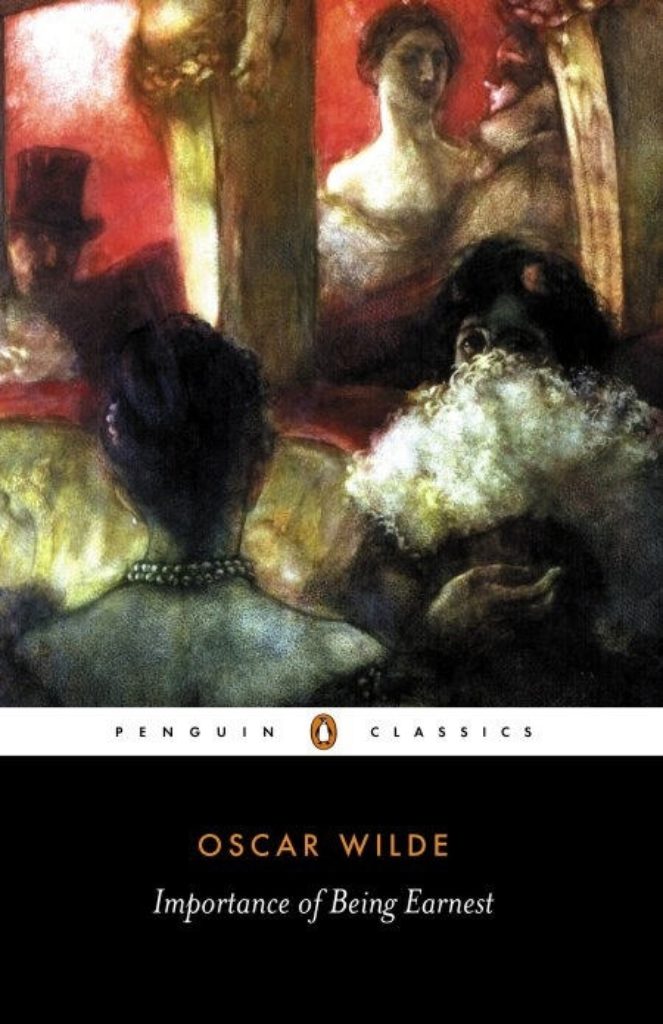The Importance of Being Earnest by Oscar Wilde has been reviewed by Focus on the Family’s marriage and parenting magazine and is a humorous classic.

The Importance of Being Earnest by Oscar Wilde has been reviewed by Focus on the Family’s marriage and parenting magazine and is a humorous classic.
To escape his country home and a young ward named Cecily, Jack Worthing creates a fictional brother named Earnest, whom he must visit often. When in town, Jack actually uses the name Earnest for himself. He’s forced to admit his deception to his friend Algernon (Algy) early in the story, and Algy visits the Worthing estate posing as brother Earnest so he can meet Cecily. Jack proposes marriage to Algy’s cousin Gwendolen and returns home determined to end his imaginary brother so he can be an honest man for his beloved. Gwendolen knows Jack as Earnest, and Cecily knows Algy as Earnest. The women meet over tea and believe they’re fighting for the same man. Jack and Algy each set up appointments with a local clergyman to be christened Earnest. In the end, Jack and Algy admit their true identities. Jack receives Gwendolen’s mother’s approval for marriage, and the couples appear headed toward a life of “happily ever after.”
Jack and Algernon call on the Reverend Canon Chasuble to christen them so that their Christian names will be Earnest. The reverend agrees, and when Jack is hesitant about immersion, Chasuble suggests that, given the weather, sprinkling is all that’s necessary or advisable. Chasuble also boasts about his “manna in the wilderness” sermon, which can be adapted to any situation, whether happy or sad. Cecily and Gwendolen express amazement that Jack and Algernon would go through such a “fearful ordeal” as being christened simply to win their hearts. Overall, critics feel Wilde was jabbing at what he perceived to be the shallowness of Victorian-era religion.
Wilde uses this farcical comedy to mock the manners and social decorum of the period. (It’s worth noting that Wilde’s own beliefs proved quite contrary to the day’s social norms. The author was known for his participation in the Aesthetic Movement — a faction of writers and artists critical of the moralistic Victorian culture. Wilde wore garish clothing, behaved in outlandish ways and was eventually jailed for practicing homosexuality.)
Lady Bracknell, Gwendolen’s mother, represents Victorian upper-class society (or Oscar Wilde’s mockery thereof). She asks Jack strange, convoluted question about his views and background as she tries to determine whether he’s suitable for her daughter. Jack serves as Cecily’s guardian, setting a questionable example for her with his lies and fabrications about a wayward brother. Miss Prism, a family servant, reveals in the end that she accidentally left baby Jack in a handbag at the train station years earlier.
None
None
Get free discussion questions for this book and others, at FocusOnTheFamily.com/discuss-books.
You can request a review of a title you can’t find at [email protected].
Book reviews cover the content, themes and worldviews of fiction books, not their literary merit, and equip parents to decide whether a book is appropriate for their children. The inclusion of a book’s review does not constitute an endorsement by Focus on the Family.